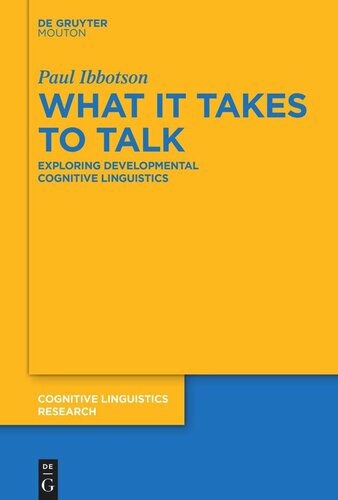

Most ebook files are in PDF format, so you can easily read them using various software such as Foxit Reader or directly on the Google Chrome browser.
Some ebook files are released by publishers in other formats such as .awz, .mobi, .epub, .fb2, etc. You may need to install specific software to read these formats on mobile/PC, such as Calibre.
Please read the tutorial at this link: https://ebookbell.com/faq
We offer FREE conversion to the popular formats you request; however, this may take some time. Therefore, right after payment, please email us, and we will try to provide the service as quickly as possible.
For some exceptional file formats or broken links (if any), please refrain from opening any disputes. Instead, email us first, and we will try to assist within a maximum of 6 hours.
EbookBell Team

5.0
48 reviewsThis book puts cognition back at the heart of the language learning process and challenges the idea that language acquisition can be meaningfully understood as a purely linguistic phenomenon. For each domain placed under the spotlight - memory, attention, inhibition, categorisation, analogy and social cognition - the book examines how they shape the development of sounds, words and grammar. The unfolding cognitive and social world of the child interacts with, constrains, and predicts language use at its deepest levels. The conclusion is that language is special, not because it is an encapsulated module separate from the rest of cognition, but because of the forms it can take rather than the parts it is made of, and because it could be nature’s finest example of cognitive recycling and reuse.